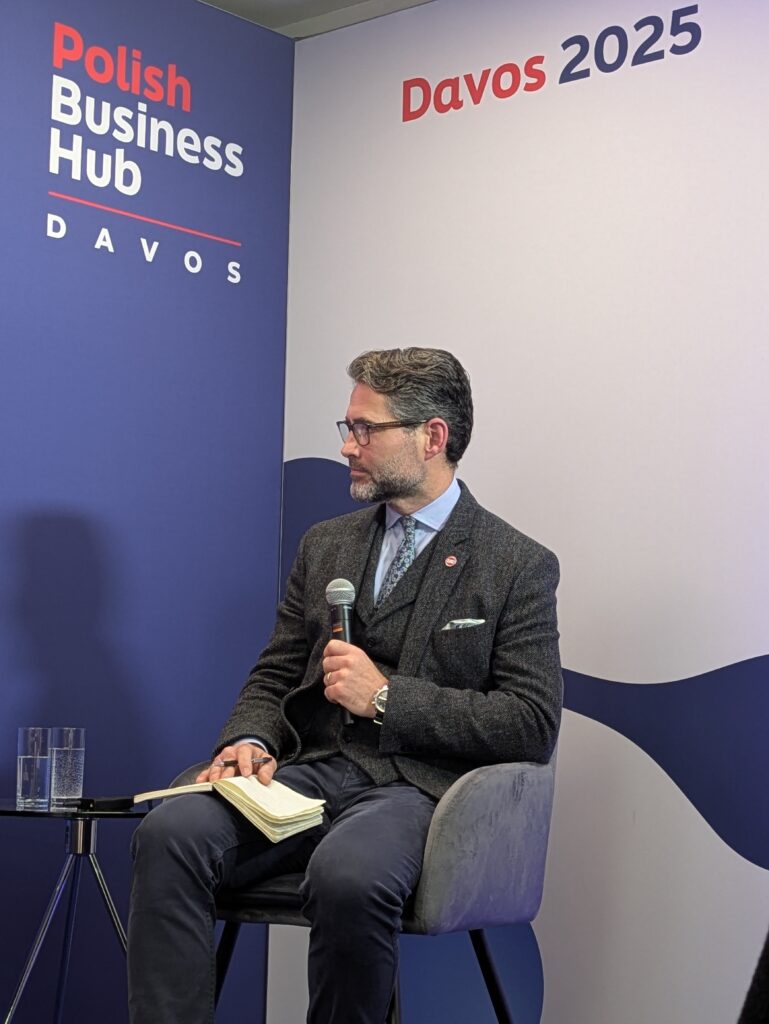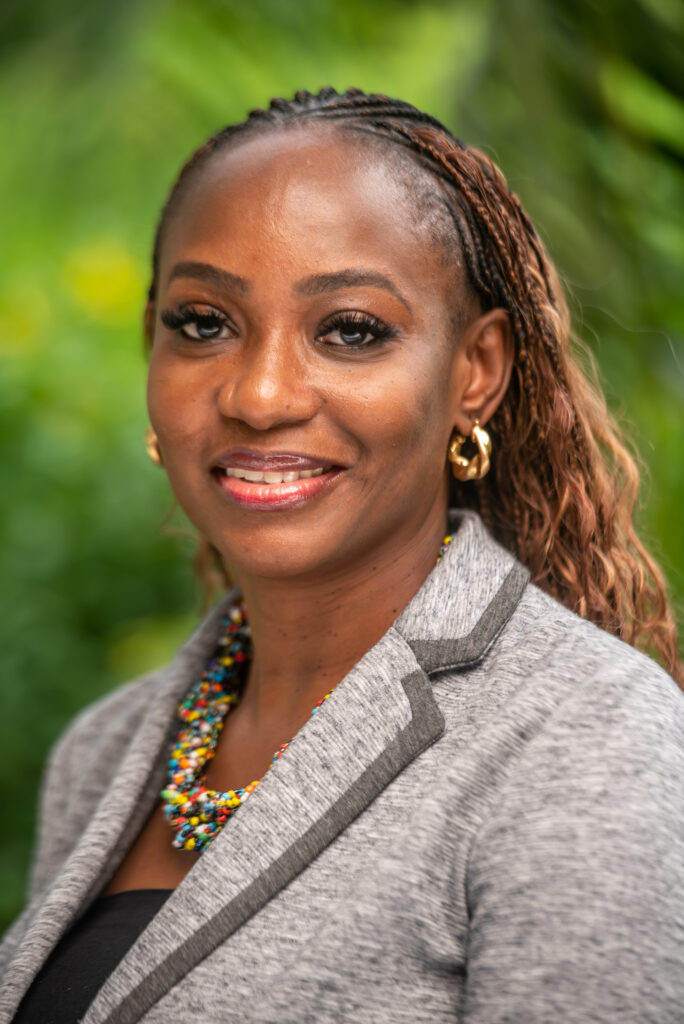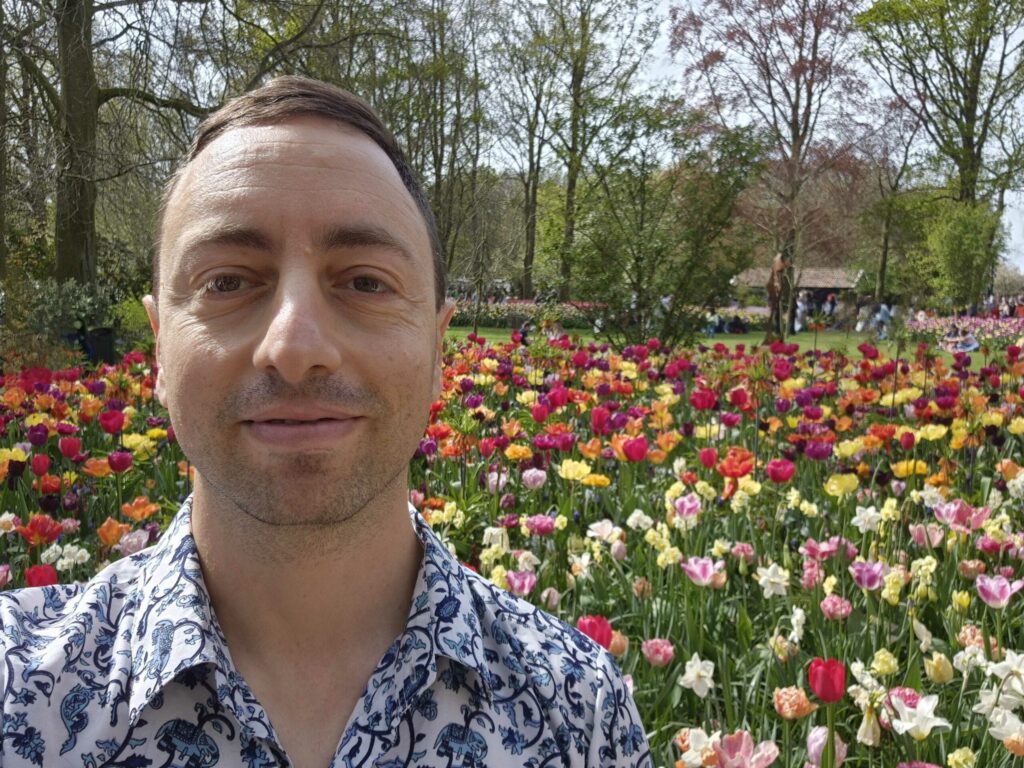Our “Employee Spotlight” series profiles employees at the END Fund. The series is part of an initiative to provide transparency and share the important work that our employees are doing to end neglected tropical diseases (NTDs). Stay tuned as we roll out new spotlights monthly. Click to learn more about the series.
Public Health is a great way to connect with and improve the existence of our fellow humans, and a chance to create positive change.
“I am a medical anthropologist by trade,” says Kelly Yotebieng, a director on our Programs team at the END Fund. “I have a master’s in public health, but my PHD is in medical anthropology. The appeal of the END Fund is that we are so focused on the individual person that these NTDs are affecting, rather than a sole focus on the vector or parasite.”
For nearly two-years, Kelly has played a pivotal role within our Programs department, leading on all things Flagship Fund. Kelly and her team support programmatic efforts in the Democratic Republic of Congo, Tanzania, Mauritania, Eritrea, and India.
“In terms of the work we are doing, people have a vision of really old-school field work where we go in and deliver the treatments ourselves,” explains Kelly.
“But what people need to understand is that the majority of the work that we are supporting is being implemented by people living in countries and communities that are directly affected by NTDs. I feel like my role is more of a support to them. My role is shared and could not work without the efforts of countless people.”
The Flagship Fund, one of four diverse funds hosted by the END Fund, supports local partners in over 30 countries in Africa, South Asia and South America. The fund, designed to support countries with the greatest NTD burdens in the world by filling funding and medications gaps, provides the flexibility to respond quickly to urgent needs and changing landscapes in NTD programs. Kelly and her team are key mechanisms that help leverage its regional experience supporting NTD prevention and control to support partners.
Long before her role with the END Fund, Kelly was a Peace Corps volunteer, which paved her path into the NTD space. “I perfected my French. I spent two years in a really remote area in Central Africa. I loved the work and I loved being there, and I wanted to continue doing it in some way. After that, I came back to consult for the UN, and then went back to the field for almost 12 years.”
Kelly Yotebieng’s journey into public health and the NTD space was not by accident.
From Peace Corps volunteer to published author, Kelly’s career has certainly been high achieving, but also important. Just as her work to eliminate NTDs has been a battle to aid some of the world’s most marginalized and overlooked populations, Kelly’s focus also centers on gender equality.
NTDs trap those affected in a cycle of poverty through their devastating effects on health, wellbeing and socio–economic capabilities. Among women, NTDs can have a deeper impact related to social consequences of the diseases like stigma, discrimination, and abandonment.
With the realities of gender imbalance in mind, Kelly helped to design a training program for female genital schistosomiasis for 750 French-speaking healthcare workers across mostly Francophone Africa.
“That was just an idea that I had because it is a disease that is not covered in many medical textbooks,” noted Kelly. “There is a huge lack of knowledge about it even in contexts where it is very prevalent, which means that it is often misdiagnosed as a sexually transmitted disease. And when women are treated with antibiotics that will not work, women can end up with severe complications like fistulas, ectopic pregnancies, and other severe reproductive health issues.”
Kelly has made a career out of serving some of the most vulnerable populations around the world. Her advice for people searching for opportunities to get involved is to encourage people to learn from organizations and people that have been doing this work for so many years in the countries where we work.
Read more Employee Spotlights, and visit our website for more information on NTDs.



